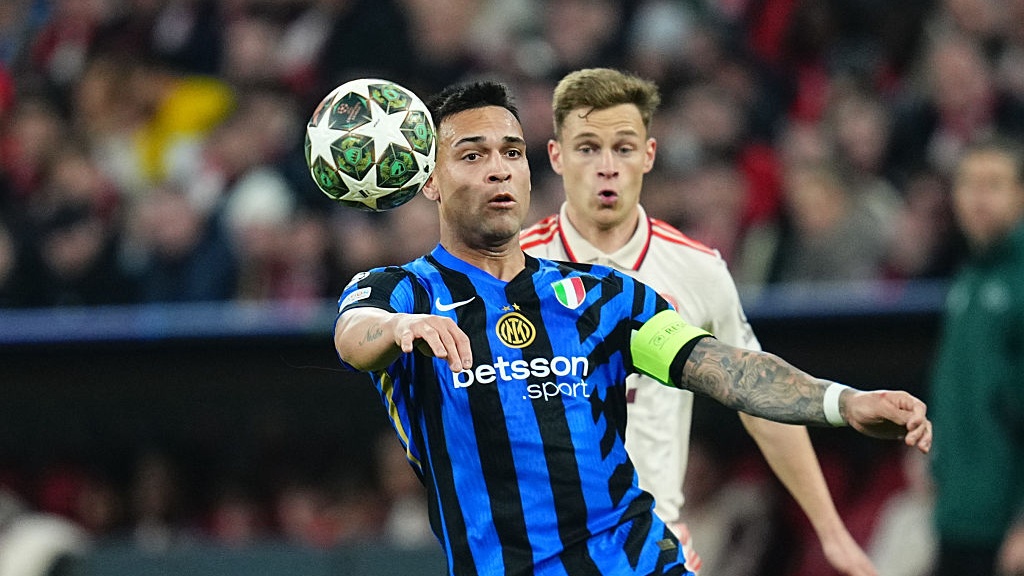Ranked! The 10 best German players ever
The land of beers, bratwursts and brilliant penalty takers. These are the greatest German players ever...
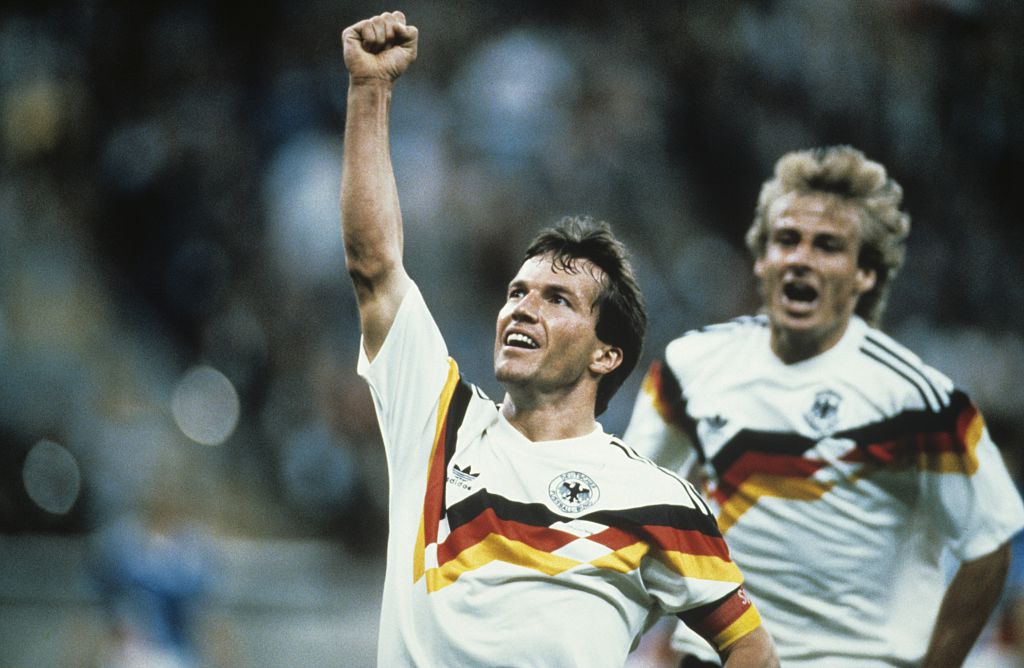
Germany are one of the great footballing nations, and their 10 greatest players ever aren't bad, either.
Whether it's cheap tickets in the Bundesliga or mulleted marvels on the international stage, there's no denying Deutschland have done as much to enrich football culture as anyone.
But who are the greatest German players of all time? We run you through our top 10. When the likes of Jurgen Klinsmann, Matthias Sammer and Rudi Voller don't make the cut, you know you've been doing something right...
The 10 best German players ever
10. Oliver Kahn
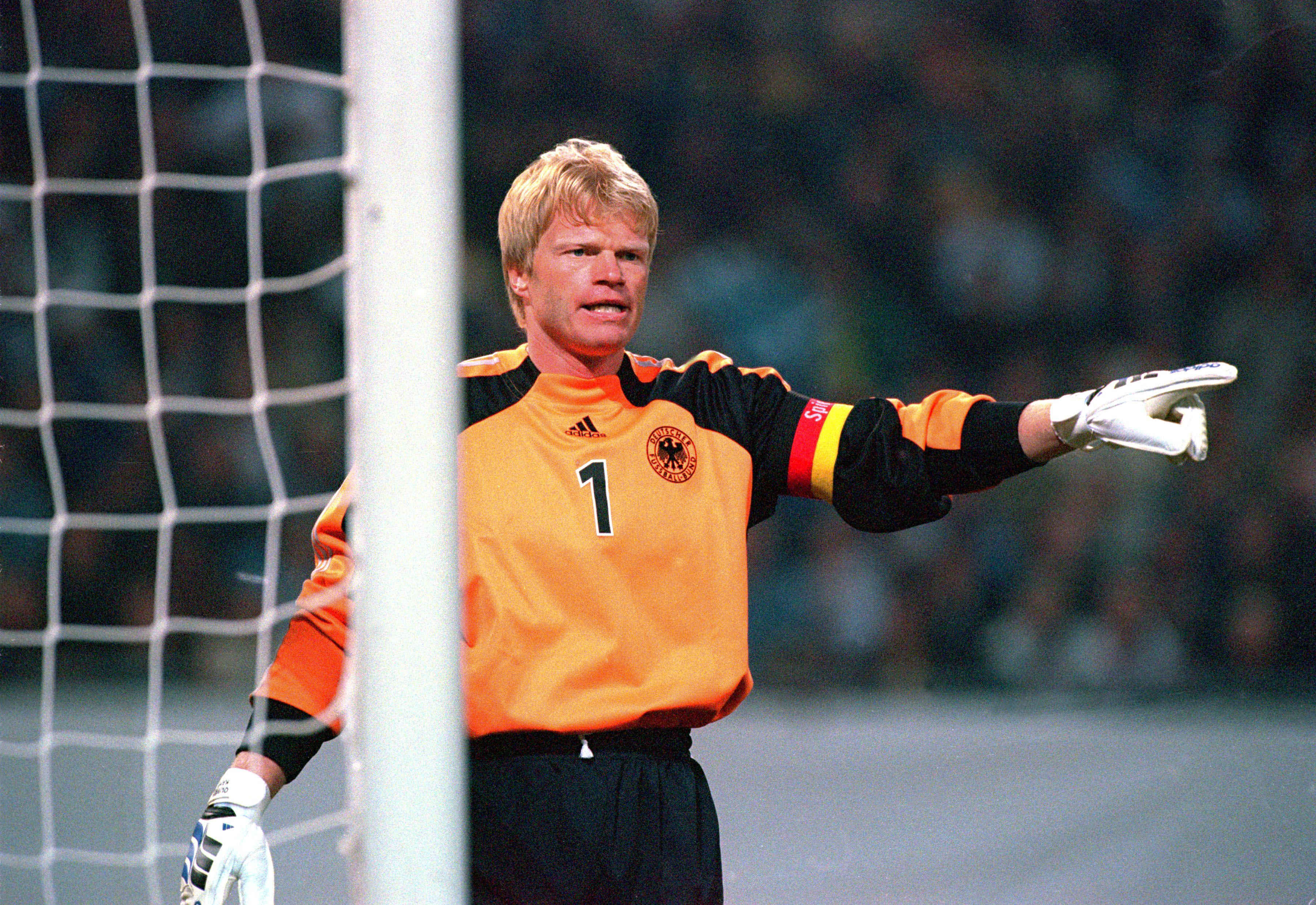
Nicknamed Der Titan for his imperious, intimidating displays between the sticks, Kahn remains one of the great goalkeepers in modern history. In more than 600 appearances for Bayern Munich, the colossus won eight Bundesliga titles, six DFB-Pokals and a Champions League. While for the Nationalmannschaft, Khan was part of the squads that won Euro 96 and reached the World Cup final six years later.
He remains the benchmark by which all goalkeepers are judged in Germany. Another may be higher in this list, but his spectacular displays in 2002 have gone down in German folklore. Indeed, Kahn remains the only goalkeeper to win the Golden Ball at a World Cup, after inspiring Deutschland all the way to the final in Japan in 2002.
9. Fritz Walter
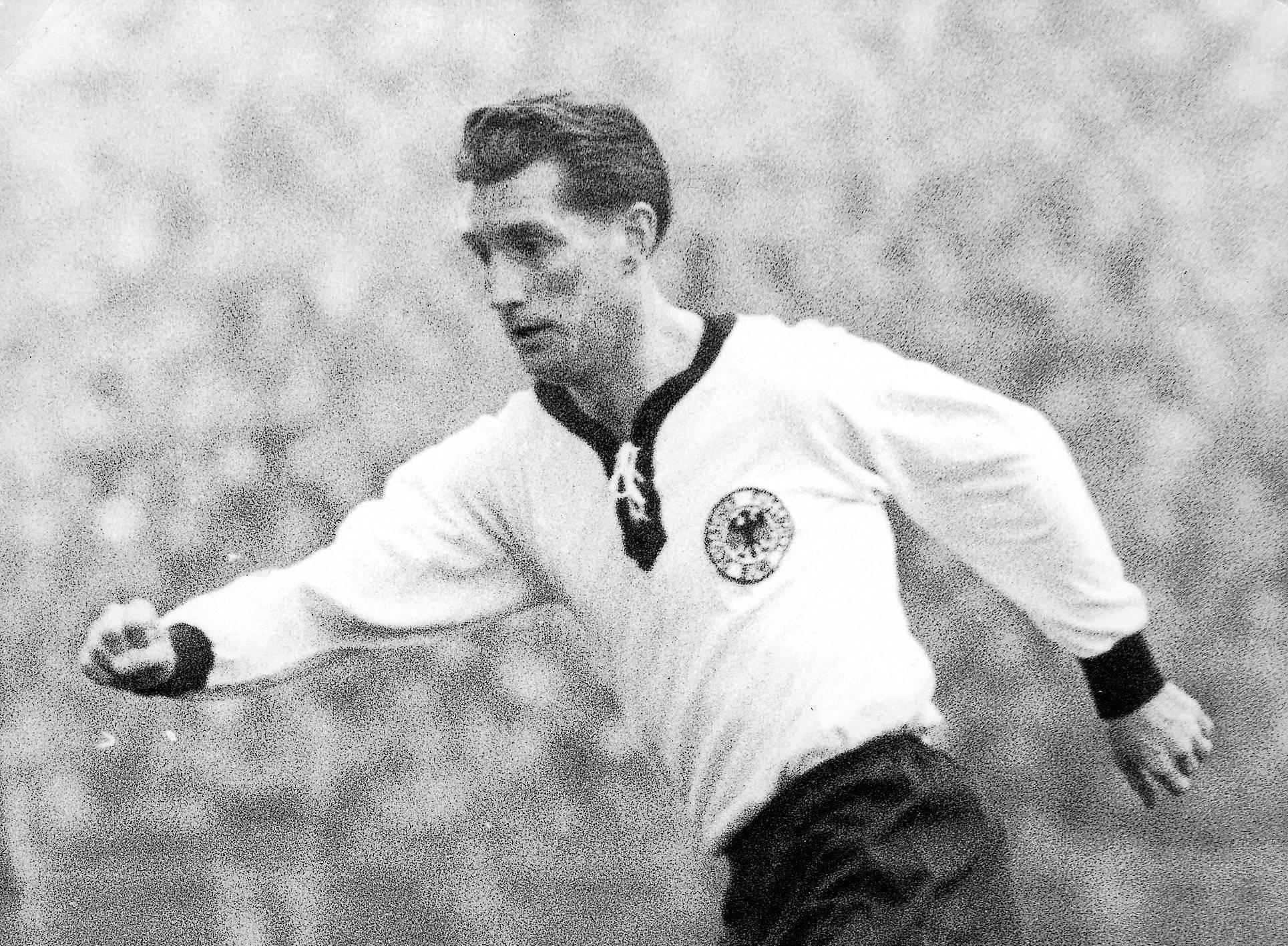
The captain of (West) Germany’s first World Cup victory in 1954, Walter was an elegant and devastating attacking midfielder equally capable of scoring and providing goals. Walter scored 33 goals in 61 appearances for Germany but, in truth, it was for boyhood club, Kaiserslautern, where he’s still most revered.
The second-tier side’s stadium, built in 1985, was named in the honour of the man who spent his entire career at the club, scoring 357 goals in 364 league games. Walter was known for his love of playing in the rain, so much so that “Fritz Walter Wetter” remains a commonly used phrase in Bundesliga vernacular; describing shambolic playing conditions.
Get FourFourTwo Newsletter
The best features, fun and footballing quizzes, straight to your inbox every week.
How was the weather on the day of the '54 World Cup final, we hear you ask? It p***ed it down, of course!
8. Miroslav Klose
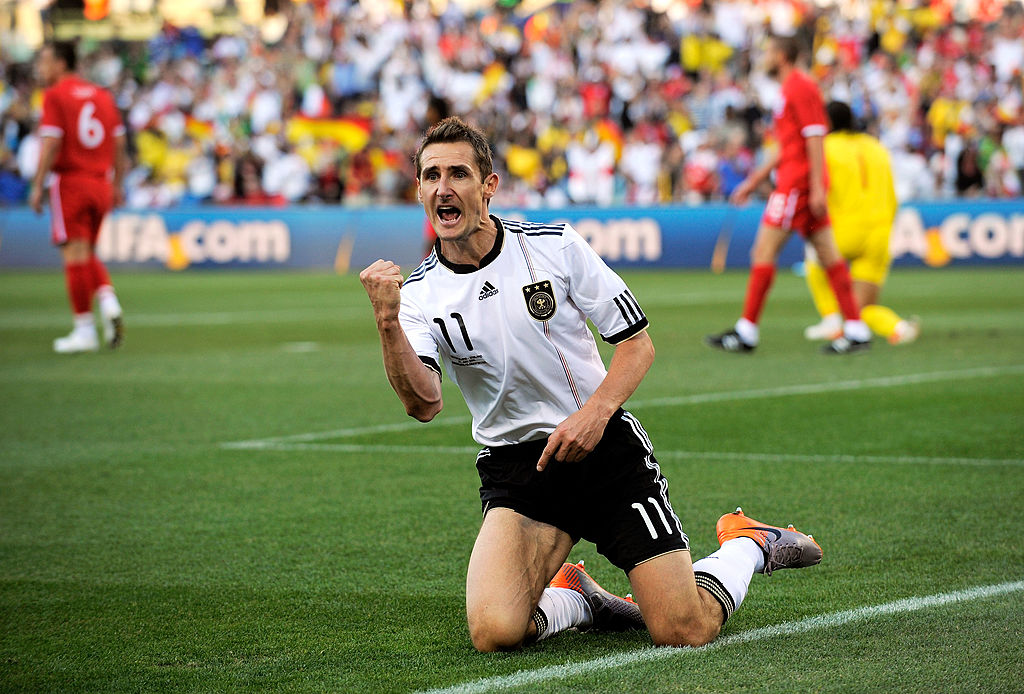
Sure, there are far better footballers on this list than Miroslav Klose - and arguably a few we haven't even included. But few players can match the target man born in Poland for international efficiency - German or not. Klose remains Germany’s all-time top scorer – with 71 goals in 139 appearances – as well as the most prolific marksman at World Cups, with 16.
Klose’s domestic record was solid, if unspectacular, with 258 goals in 667 matches for a clutch of European clubs. He won two Bundesliga titles, with Bayern, as well as a Coppa Italia with Lazio. Without his international career, he was a decent player. With it, he’s a bonafide legend. We couldn't possibly leave him out.
7. Manuel Neuer
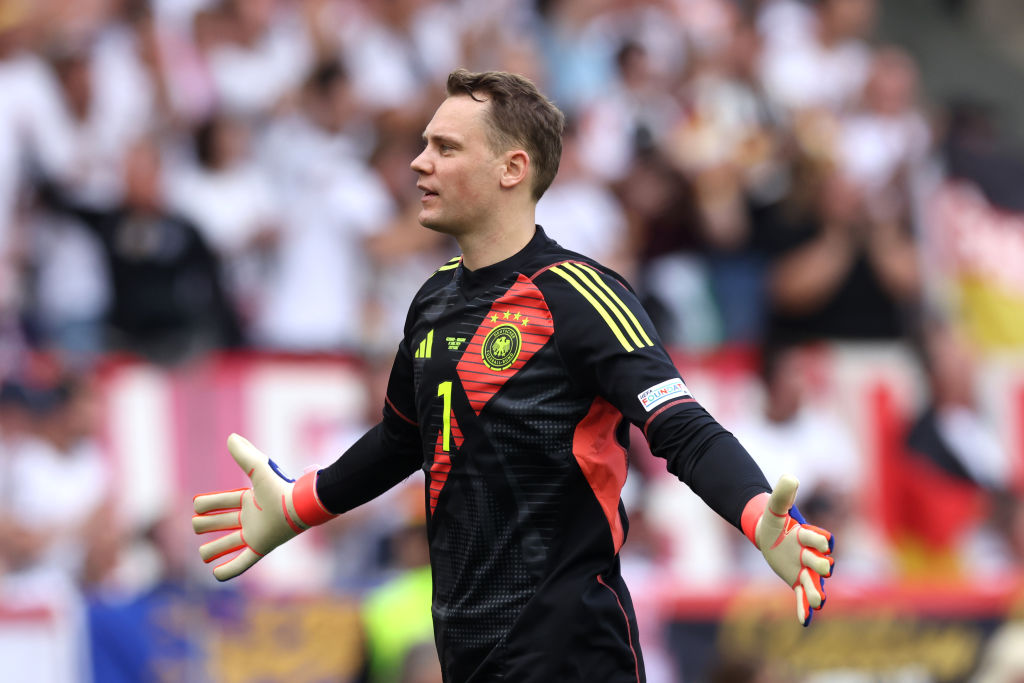
The man often credited with changing an entire position. In truth, Neuer certainly didn’t invent the sweeper-keeper role – with countless examples having gone before him – but there’s no denying the Germany and Bayern captain perfected the art.
Neuer is so good with his feet, Pep Guardiola famously had to be talked out of fielding him in midfield during his time in Bavaria. The 36-year-old has been the bedrock of two trebles at Bayern, in 2013 and 2020, plus the absolute abundance of Bundesliga titles he's won while guarding the nets at the Allianz Arena. A 2014 World Cup, in which he proved pivotal for Germany, adds an even greater accolade to his career honours, too.
6. Gunter Netzer
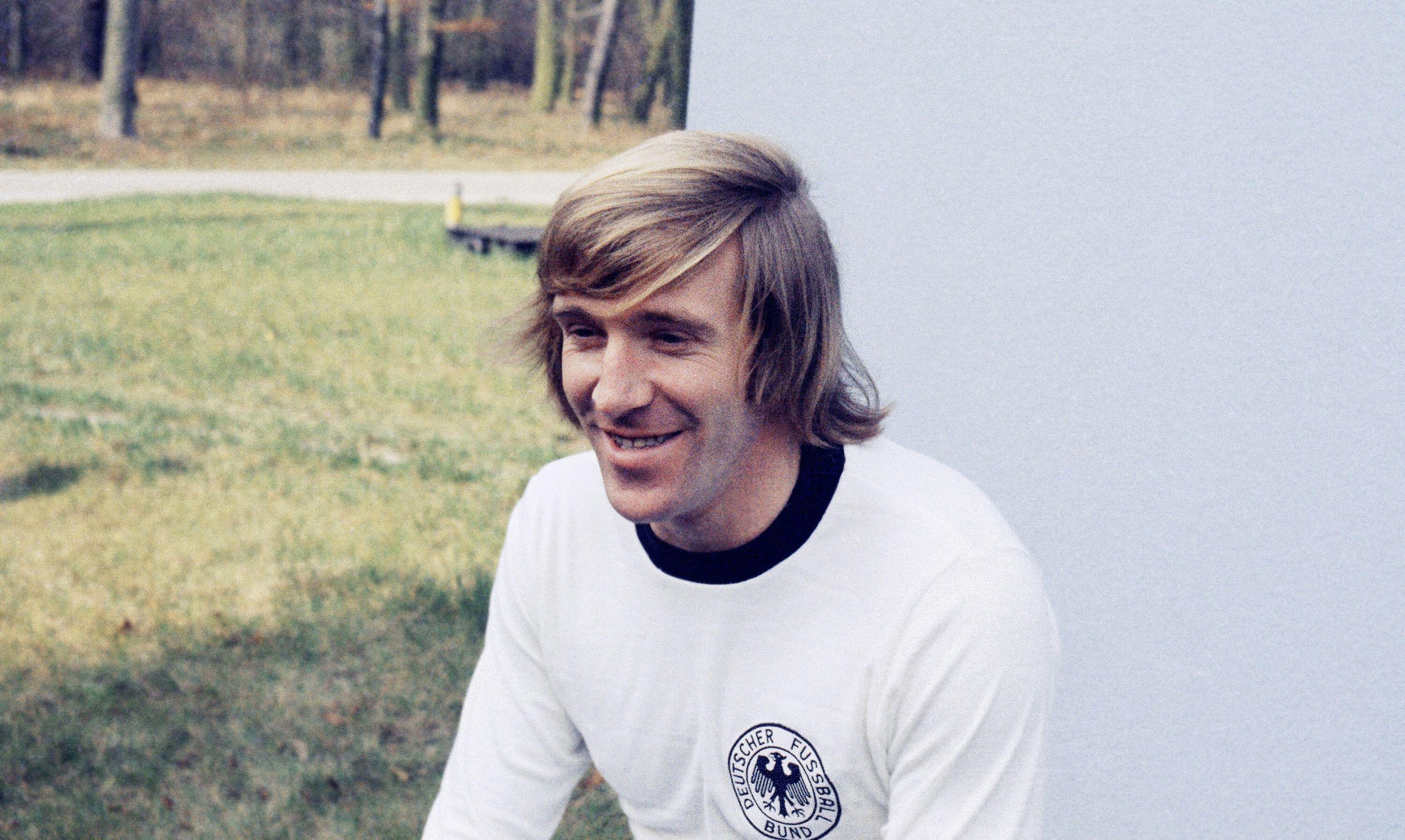
Nicknamed ‘Karajan’, after the esteemed Austrian classical conductor, Netzer was a player of rare intelligence, balance and technical genius, considered by many to be the greatest passer in German history. With the national team, Netzer was part of the sides that won Euro 1972 and the World Cup 1974 – finishing third in the Ballon d’Or following the former triumph.
With his good looks, flowing blonde hair and playboy lifestyle, the midfielder could frustrate those who picked the teams, but football fans awarded him god-like status. The maverick midfielder orchestrated Gladbach’s back-to-back Bundesliga triumphs in the early-70s, before moving to Real Madrid and doing the same thing there.
If one story highlights just how easy he found things, it's the 1973 DFB-Pokal final. The playmaker – who started on the bench after reportedly telling his manager he was off to Spain that summer – removed his tracksuit and informed the gaffer “I’m going on to play now” during extra-time. He proceeded to score the winner, before completing his move to Los Blancos.
5. Uwe Seeler
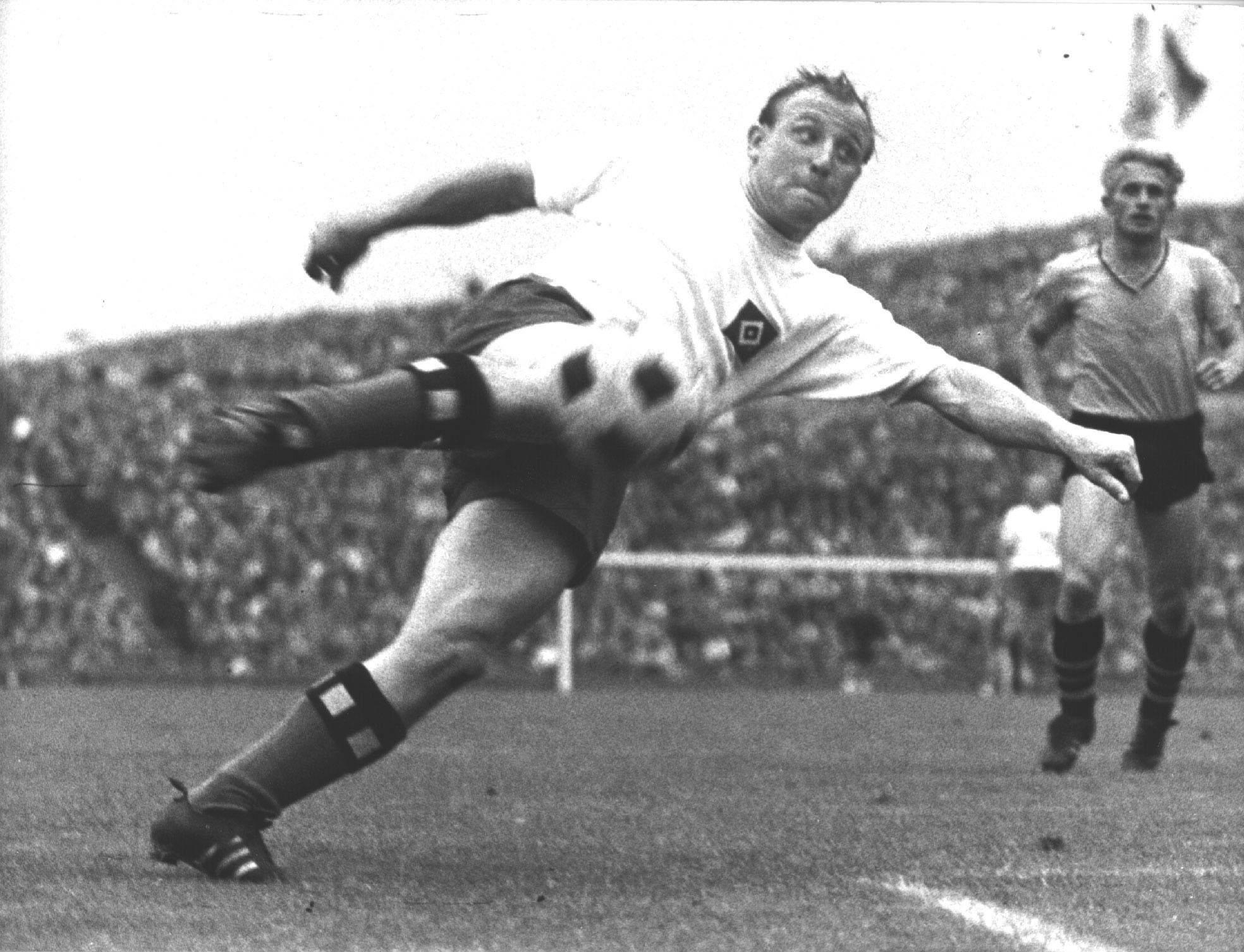
The undisputed star of German football in the 1960s, Seeler would certainly top another FFT list should we ever do it: the best statues in world football. An enormous stone carving of Seeler's bare right foot stands proudly outside Hamburg’s Volksparkstadion. It’s just reward for scoring 490 goals in 580 HSV appearances. The three-time German Football of the Year was known for his strength, leadership, aerial ability and – surprisingly for such a big boy – his acrobatic overhead kicks.
Seeler’s irrepressible goal scoring instincts fired HSV to the German title in 1960 and a DFB-Pokal three years later. His 43 goals in 72 international appearances also brought West Germany within touching distance of the 1966 World Cup. A distraught Seeler being helped off the Wembley turf is one of the most iconic photos in football history.
4. Philipp Lahm
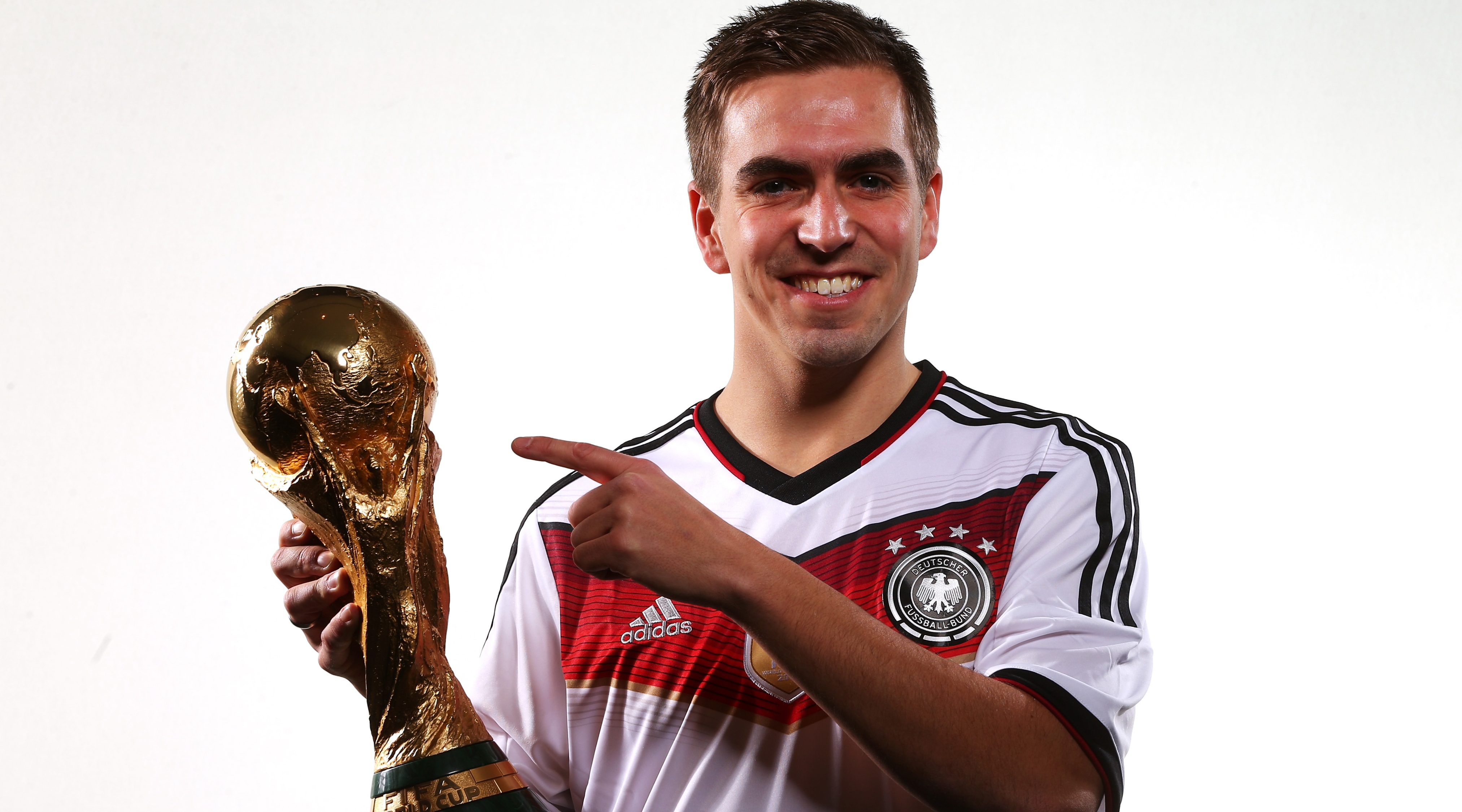
Short, not particularly strong, fast or aggressive – you’d be forgiven for mistaking Philipp Lahm for an accountant instead of one of the greatest players ever. The Bayern stalwart might have lacked physicality, but he made up for it with a staggering football IQ. His repositioning, from right-back to midfield orchestrator under fprmer Bayern boss Pep Guardiola in 2013, commenced a three-year period in which he was arguably the best in the world in both positions for several seasons thereafter.
“He’s one of the most fantastic players I’ve ever trained in my life,” Pep Guardiola once said of the 5ft7 utility man. “Even talking about the most intelligent players, he is one of them.”
Lahm won eight Bundesliga titles, six DFB-Pokals and a Champions League with the Bavarian giants, but his greatest moments came on the international stage. Eight years after his stunning strike against Costa Rica at the 2006 World Cup on home soil, Lahm lifted the trophy as captain of the Nationalmannschaft. That 2014 team is probably the greatest in German history; Lahm might have been the pick of the bunch.
3. Lothar Matthaus
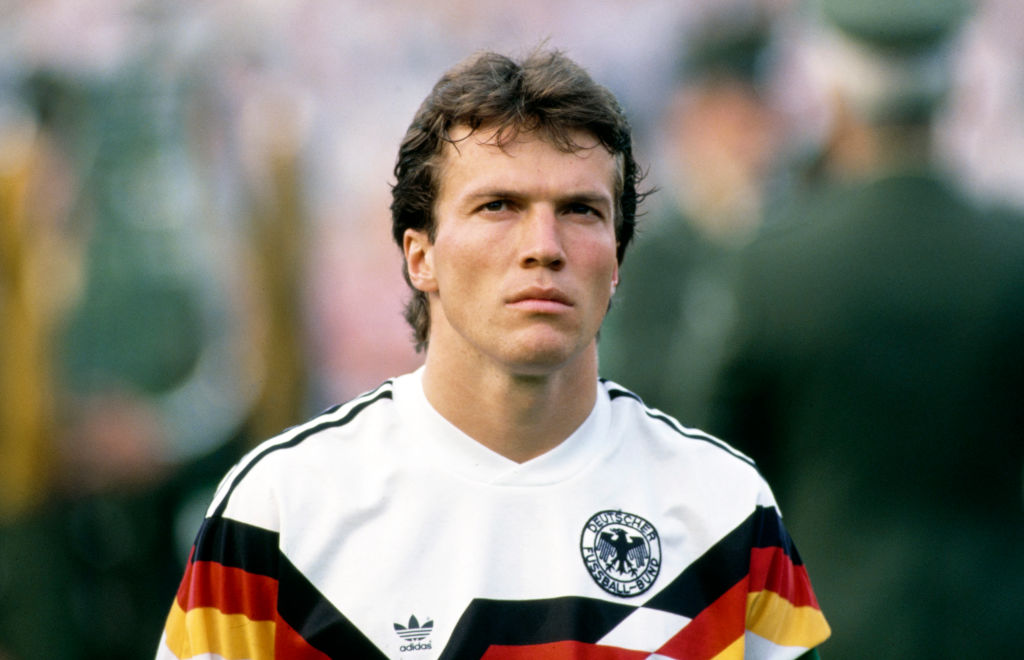
It seems mathematically impossible that Mattheus played in both Euro 1980 and Euro 2000, but *checks notes again* he really did. Victorious in that first tournament and captain for West Germany’s triumph at Italia 90, Matthaus even found time to miss Euro 96 during that remarkable run.
The midfielder, sweeper and indefatigable leader boasts more caps (150) than any German man and more World Cup appearances (25) than anyone. Diego Maradona called him his “fiercest competitor” and former Bayern coach Giovanni Trapattoni ranked him above Michel Platini and the aforementioned Argentine. “There was a hierarchy at Bayern,” former Bayern striker Giovane Elber once told FFT. “Lothar was the big dog."
Mattheus was the brains and brawn for every team he represented – whether it was the all-conquering Bayern of the ‘80s and late ‘90s or a sublime Inter Milan side that lifted the league and UEFA Cup titles in between.
2. Gerd Muller
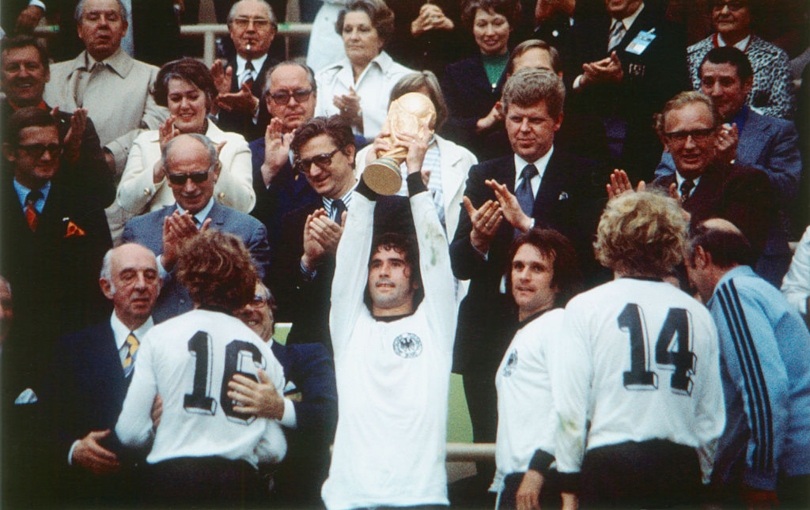
Teased for being short and fat as a youngster, Muller’s schooling as an apprentice weaver in small-town Bavaria is credited with developing the stocky, powerful physique which later made him a wrecking ball in the penalty box.
Nicknamed Der Bomber by German football fans for his ability to destroy defences, Muller notched 365 goals for Bayern in 427 appearances – a rate of 0.85 goals per game. Known for his strength, powerful shot and acceleration, Muller is also Germany’s second-highest scorer with 68 goals, three behind Miroslav Klose (71), despite having played 75 fewer games.
Muller remains both Bayern and the Bundesliga’s all-time record goalscorer. He also has the most hat-tricks for Germany, with eight. He held the record for the most World Cup goals (14) between 1974 and 2006, when it was broken by Brazil’s Ronaldo.
He was a stats machine; a cheat code of a striker during a time when pitches were terrible and yellow cards barely existed. He was the greatest goalscorer in German history.
1. Franz Beckenbauer
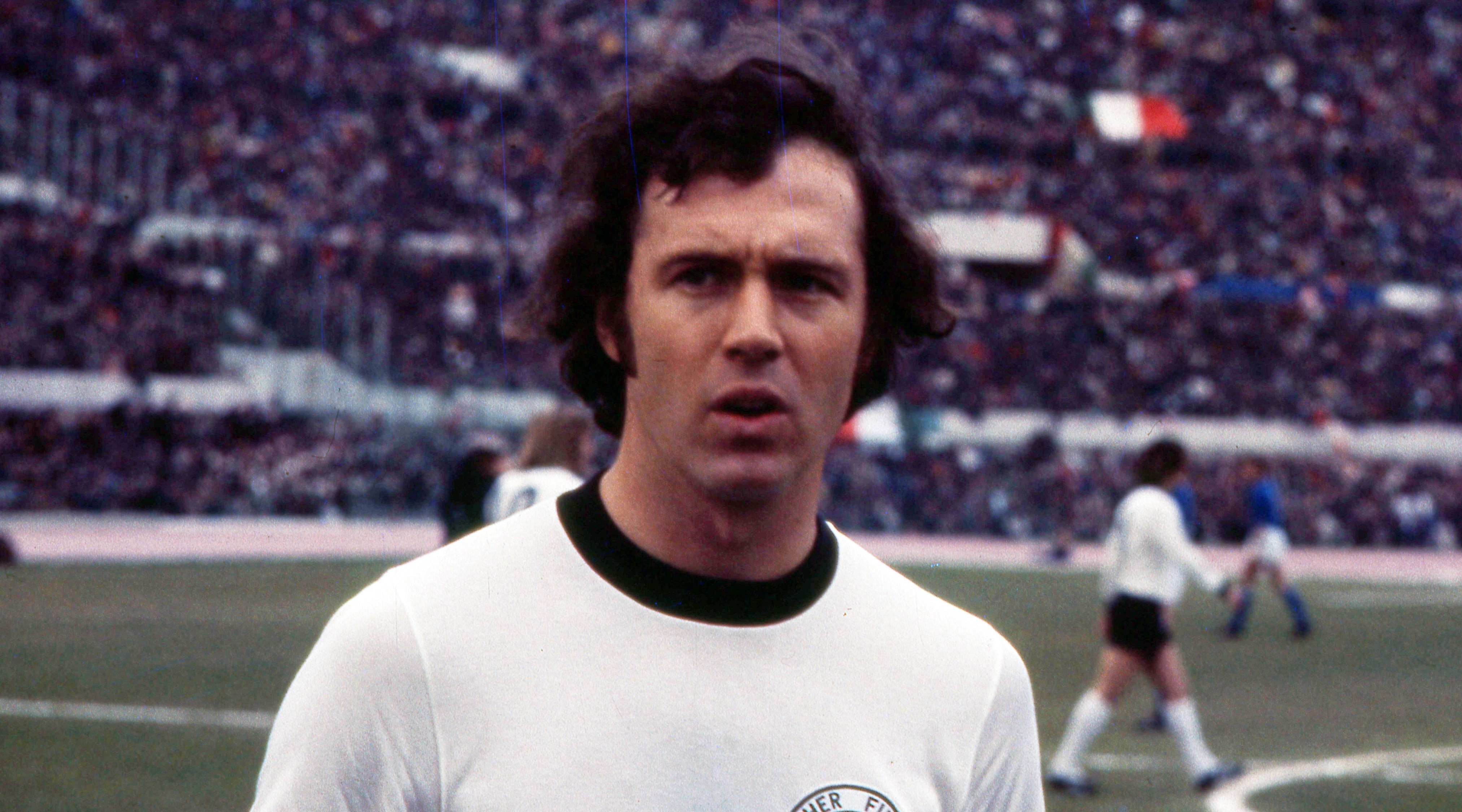
Sweepers were already common in the ‘60s, but none had ever played the role quite like Beckenbauer. Not only did he dictate play from deep with his virtuoso passing range, he constantly surged forward with the ball, gliding past opponents to join in attacks. The libero role was born, with Der Kaiser its earliest proponent.
Beckenbauer won four league titles, four German Cups, three European Cups and two Ballon d’Ors with Bayern and added one more later in his career with Hamburg – evidence of his ability to turn any team into winners.
With the national team, the defender and captain was the driving force behind triumphs at Euro 72 and the World Cup two years later. No player has ever been as elegant, as calm in possession, as inspirational and as feared as Beckebauer. And no German is celebrated or revered so highly. He was and will surely forever remain the greatest player in German history.

Ed is a staff writer at FourFourTwo, working across the magazine and website. A German speaker, he’s been working as a football reporter in Berlin since 2015, predominantly covering the Bundesliga and Germany's national team. Favourite FFT features include an exclusive interview with Jude Bellingham following the youngster’s move to Borussia Dortmund in 2020, a history of the Berlin Derby since the fall of the Wall and a celebration of Kevin Keegan’s playing career.
